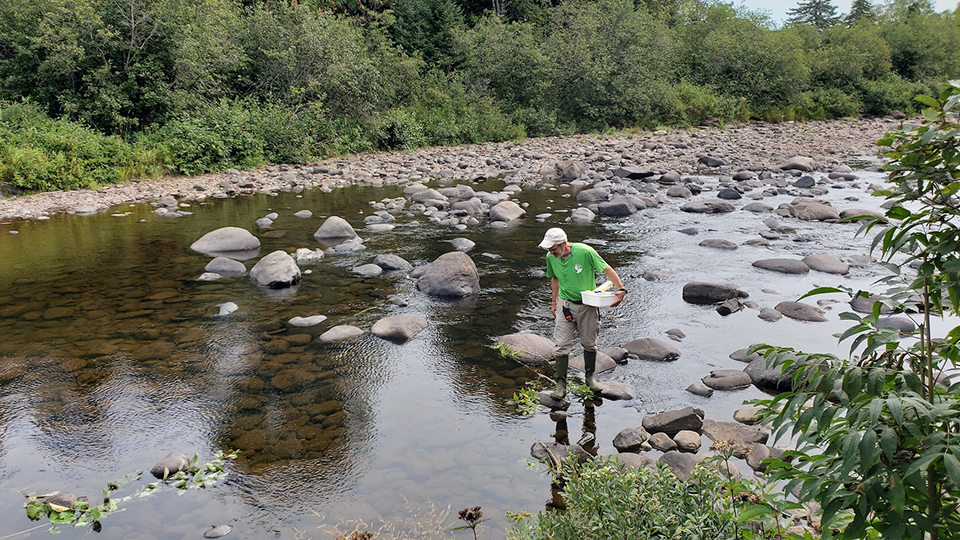
Meet Dr. Mark Edlund, Senior Scientist
What does "bold science" mean to you?
When I think of bold science, two visions come to mind. First, bold science addresses global problems with solutions in mind—how can we best use science to address the problems and issues facing the world. Second, bold science means action and accessibility. Bold science spurs people to action and responding to the issues that face our world. And bold science makes that information accessible to everyone so that action can guide and lead to solutions.
How does your role at the Science Museum play a part in combating climate change?
I am a senior scientist and aquatic biologist with the museum, where I specialize in how algae can be used as indicators of environmental change, including climate change. Algae are found in every waterbody, and because they are usually small and microscopic, the diversity and abundance of algae change when the environment changes.
My research uses monitoring and historical sediment cores from the bottom of lakes to investigate how lakes and streams are changing. For example, algae fossils in sediment cores are a record of how each lake’s ecology has responded to what is happening in the lake, its watershed, and the world. My role is to understand how climate has impacted and is currently impacting lakes, prepare us for managing and responding to those changes, and through outreach make our science accessible to all.
What gives you hope in the fight against climate change?
Three things give me hope. First, everyone can do something to fight climate change—shift driving and transportation habits, start going meat-free one day a week, work toward sustainability, and when opportunity presents itself, always think about how your choices can help in the fight against climate change. Second, there are great scientists at the museum and colleagues everywhere who are as passionate as I am about climate action. Third, young people are the voices of hope and action and are showing the rest of us what must be done to address climate change. Follow their lead!
What are the biggest opportunities for addressing climate change?
The biggest opportunities for addressing climate change come first with learning about climate change and how each of us has a role and must be part of the solution. That’s my biggest opportunity as a scientist—to be able to communicate my science to everyone to first inform and then push for action! Finally, we must continue to support new technologies that are continuously being developed, tweaked, and made ready for adoption to get us toward a reduced carbon footprint and reduced atmospheric levels of CO2 and methane.